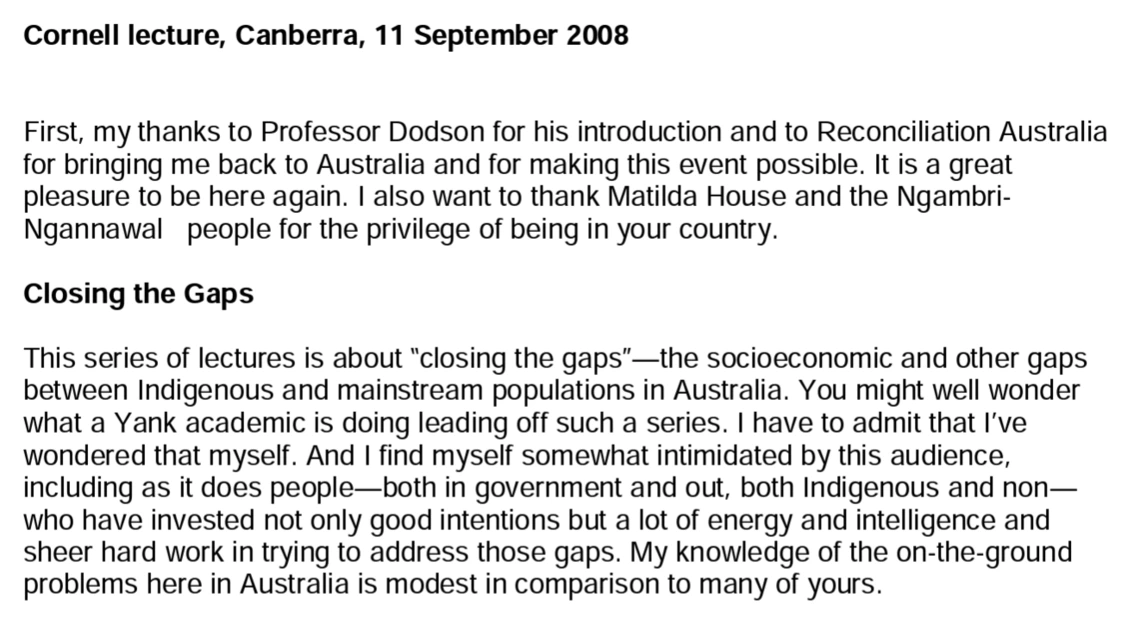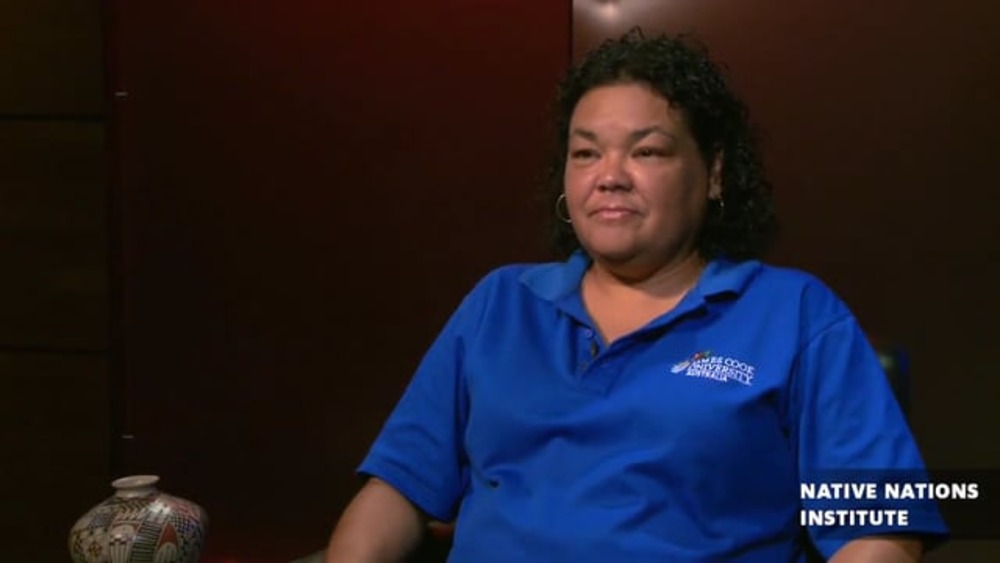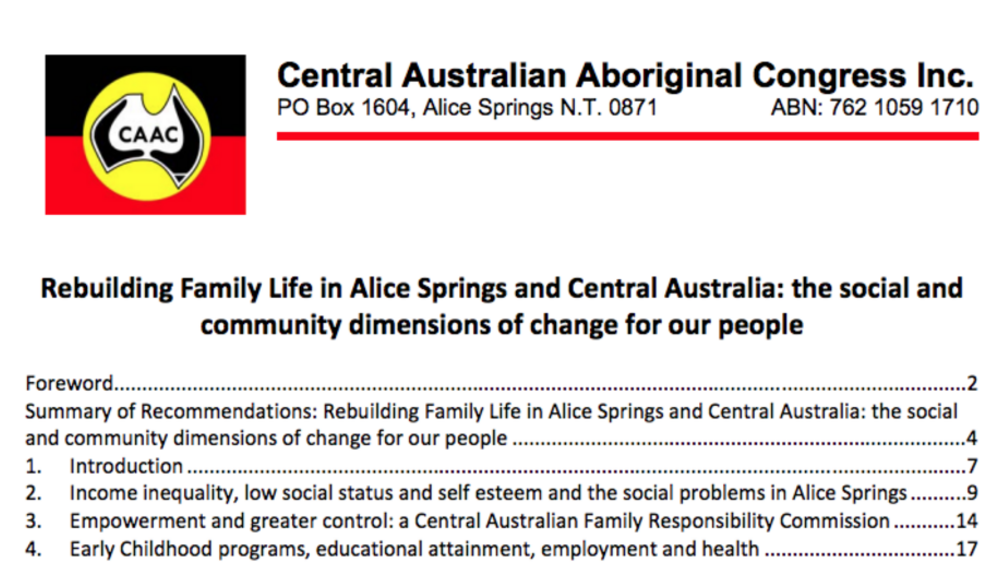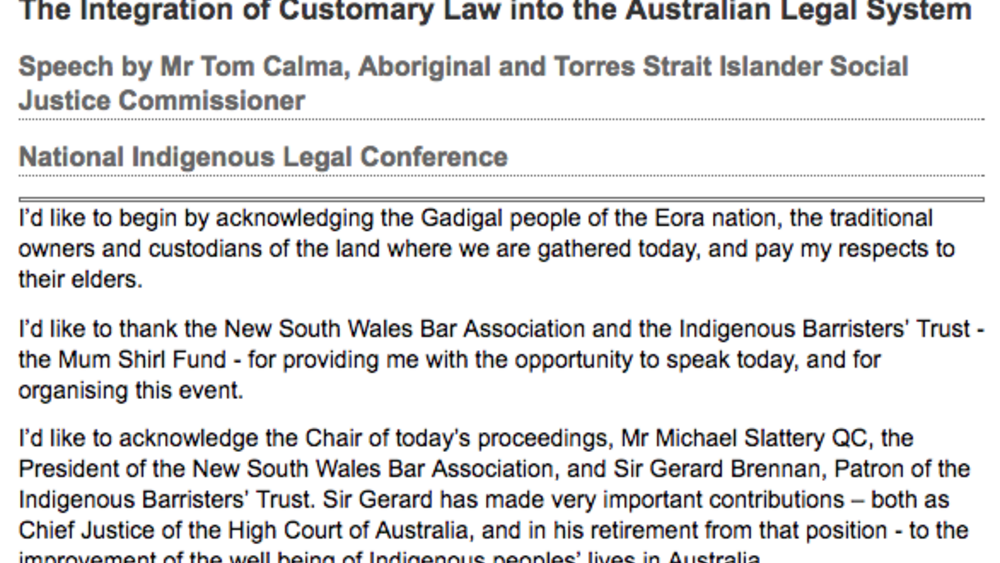This series of lectures is about “closing the gaps”–the socioeconomic and other gaps between Indigenous and mainstream populations in Australia. You might well wonder what a Yank academic is doing leading off such a series. I have to admit that I’ve wondered that myself. And I find myself somewhat intimidated by this audience, including as it does people–both in government and out, both Indigenous and non–who have invested not only good intentions but a lot of energy and intelligence and sheer hard work in trying to address those gaps. My knowledge of the on-the-ground problems here in Australia is modest in comparison to many of yours.
But I’m hoping I can persuade you today that there is relevance in exploring the experience of other countries, for yours is not the only one that faces this challenge. Earlier in this decade, New Zealand government policy toward Maori operated under a “closing the gaps” banner. There’s frequent debate in the news media in Canada about why the Aboriginal peoples of that country continue to languish in poverty. And my own country–the United States–has an Indigenous population that ranks at or near the bottom of the scale in household income, employment, health, housing, and other indicators, all of which lag far behind the American population as a whole...
Additional Information
Cornell, Stephen. "Closing the Gap: A North American Perspective." A Public Lecture Sponsored by Reconciliation Australia. National Gallery of Art. Canberra, Australia. September 11, 2008. Presentation.




